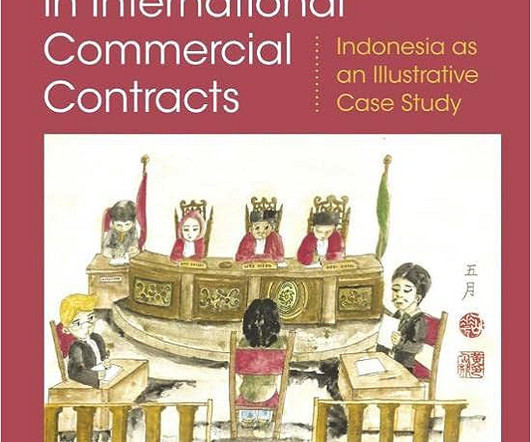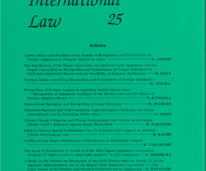Review of Afifah Kusumadara, Indonesian Private International Law, Oxford: Hart Publishing, 2021, 288 pp, hb $140
Conflict of Laws
AUGUST 29, 2024
Spanning 226 pages across six chapters, the book aims to be the leading English-language text on private international law in Indonesia. Indonesia, a civil law country, has legal principles influenced by Dutch traditional private international law, owing to its colonial history. Pereira (Supreme Court decision 376 K/Pdt.













Let's personalize your content